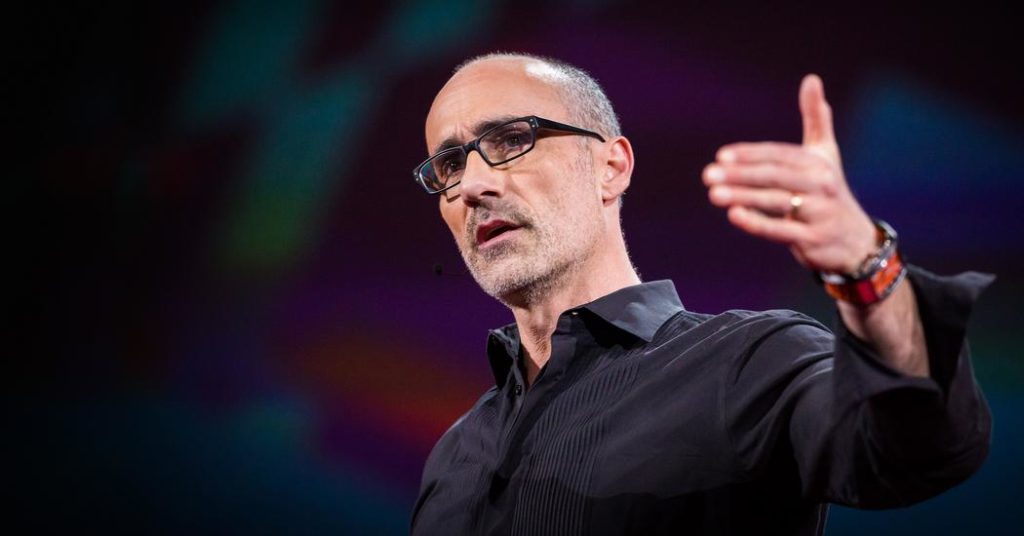For members of The Church of Jesus Christ of Latter-day Saints, the family is central to our faith. In fact, we have a theology of the family. Faith and family are deeply embedded into everything we do, from temples to genealogy and missionary work. It’s what we’re all about.
The family proclamation teaches us that “the family is central to the Creator’s plan for the eternal destiny of His children.” It concludes with uses strong, declarative words such as “we warn” and “we call upon”, which give us an idea of just how serious we should be taking this document. We know that this is one of the most significant doctrinal statements of The Church of Jesus Christ of Latter-day Saints. But why exactly is the family and religion so critical to the well-being of our society? To the world? Do these religious principles hold water outside of our church? Do they hold water from a secular standpoint?
Tad Callister’s recent address to the Mayflower Society titled “America’s Choice: A Nation Under God or Without God” (link) may help answer these questions. He makes the following points:
1. “There is a necessity of a moral people. Without moral guidelines from God, there are no fixed boundaries to address the burning social issues of our day. … a nation of moral relativism, built upon a foundation of sand that would shift or collapse with the constantly changing tides of public opinion.”
—–2. “Goodness comes from learning the will of God and doing it. That is one reason why religion is so critical to the welfare of [the world], because it defines and reinforces the moral principles by which we should live. It is our [world’s] best catalyst for goodness. It is a counterbalance to man’s natural and selfish interest and desires for power.”

This may sound sensible to members of The Church of Jesus Christ of Latter-day Saints. After all, we believe that these principles are encompassed in plan of salvation. But what about in the secular world? Callister answers this by quoting from prominent professor and writer, Arthur Brooks, who wrote a book titled “Who Really Cares?” This book is a frank and honest discussion of an avalanche of research about who really gives money or time for charity and community service and who does not. Brooks shares these conclusions:
Religious people are far more charitable with their time and money than secularists. Religious people are more generous in informal ways as well, such as giving blood, giving money to family members, and behaving honestly.
Brooks then makes a candid admission, adding significant weight to his positive assessment of religion:
I confess the prejudices of my past here to emphasize that the findings in this book—many of which appear conservative and support a religious, hardworking, family-oriented lifestyle—are faithful to the best available evidence, and contrary to my political and cultural roots. Indeed, the irresistible pull of empirical evidence … is what changed the way I see the world.
What a fascinating conclusion from such a prominent individual! By his own admission, he didn’t pay much heed to the faith and family-oriented lifestyle, yet he was compelled to change his worldview once he saw the avalanche of empirical evidence. Timothy P. Carney, author and commentary editor of the Washington examiner backs up what Brooks found:
From time to time, the media will trumpet some study finding some malady among the religious—they’re angrier, or stupider, or greedier. But ask almost any social scientist, Left or Right, religious or secular, and he or she will tell you with high confidence that religious people are better off socially and economically and fall into fewer negative behaviors (crime, teenage pregnancy, drug abuse, suicide) than nonreligious people. Popular culture likes to paint the dark picture of religion in America, but the actual data point the other way.
This is why faith and family are so critical to the well-being of our society. When mountains of data support the repeated teachings of prophets and apostles, the bridge between faith and reason crystallizes. It’s one of the (many) reasons for this website. The use of ancient and modern scripture, scholarship and storytelling are a compelling combination for making the case for strong marriages and families = strong societies and happier people. We hope you’ll be able to use some of the data points on this site to help you in your everyday conversations with friends and family—perhaps even this week.
For a deeper look at why research is so important to this site, please visit our Research page.

